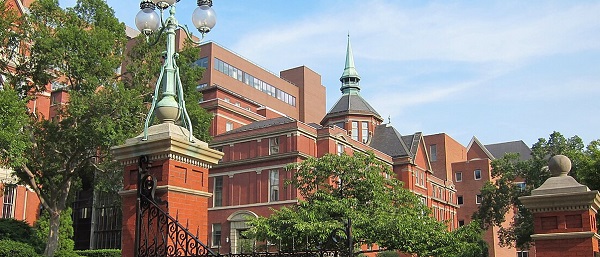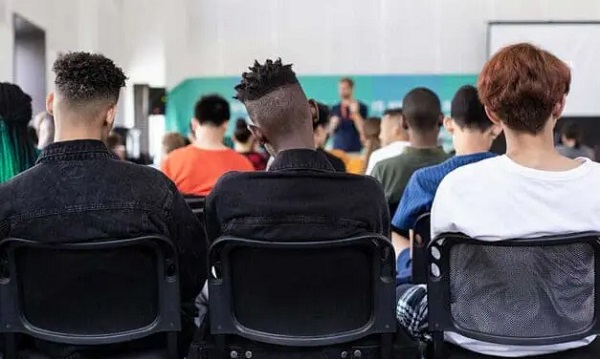Education
St. Lorenzo Ruiz Middle School Joins the Jays Care Foundation’s Challenger Baseball Program

News release from Red Deer Catholic Regional Schools
St. Lorenzo Ruiz Middle School is thrilled to announce its selection to participate in the Jays Care Foundation’s Challenger Baseball Program, an initiative designed to bring the joy and benefits of baseball to children, youth, and adults living with physical and/or cognitive disabilities. This marks a significant milestone for the school, emphasizing its commitment to inclusivity and adaptive sports.
An opening ceremony to commemorate the launch of the Challenger Baseball Program at St. Lorenzo Ruiz Middle School’s gymnasium is scheduled for Monday, April 8, from 11:00 to 11:30 a.m. The event will feature the raising of a special banner, symbolizing the school’s proud partnership with the Jays Care Foundation and the beginning of an exciting journey for its students.
“We are eagerly anticipating this new chapter for our students at St. Lorenzo, marking the beginning of what promises to be a fruitful partnership with the Jays Care Foundation,” said Joel Peterman, St. Lorenzo Ruiz Middle School Vice-Principal.
Thanks to the generous donation of equipment from the Jays Care Foundation, students in St. Lorenzo’s Foundation/Blended Program will have the opportunity to engage in adaptive baseball and softball. These sports are not just about physical activity; they are a means to teach important life skills such as teamwork, communication, determination, resiliency, inclusion, support, and courage.
Around 10 students from the St. Joseph High School Ball Academy are set to join the program, planning to meet with participants weekly to aid in skill development. Additionally, several members from the SJHS Ball Academy will be present at the opening ceremonies.
The Challenger Baseball Program, a collaborative effort between Jays Care Foundation, Little League Canada, and Baseball Canada, is tailored to empower athletes with disabilities, ensuring they have the chance to play in a fun, safe, and supportive environment. Through the program, athletes will learn to become more independent, gain confidence, improve communication skills, and set and achieve personal goals.
During the summer months, volunteer community coaches will lead distinct leagues across Canada, while the school year sees the program being implemented in partnership with schools and various community-based organizations. Participants in the program can expect to receive not only in-person training from Jays Care but also adaptive equipment, and a host of coaching tools to enhance their experience.
The impact of the Challenger Baseball Program is profound. Last year alone, it reached over 9,800 participants across 289 programs, becoming the sole sports programming for 61% of the participants, according to their parents and guardians. It has shown significant benefits in increasing independence, self-esteem, peer relationships, and physical literacy among athletes with disabilities.
St. Lorenzo Ruiz Middle School is honored to be a part of this transformative program and looks forward to the positive changes it will bring to its students and the wider community.
Join us at the opening ceremony to celebrate the beginning of an inclusive, empowering sports journey for our students.
About St. Lorenzo Ruiz Middle School:
St. Lorenzo Ruiz Middle School opened its doors in August 2023 and serves students in grades 6 – 9 in Red Deer’s Kentwood Neighbourhood.
About the Jays Care Foundation:
As the charitable arm of the Toronto Blue Jays, Jays Care Foundation uses baseball to teach life skills and create lasting social change for children and youth across Canada. Through programs like Challenger Baseball, they work to ensure young people have access to sport and development opportunities, regardless of the barriers they may face.
Education
Johns Hopkins University Announces Free Tuition For Most Students


From the Daily Caller News Foundation
Johns Hopkins University (JHU) announced on Thursday it is making tuition free for families earning less than $200,000 and will waive both tuition and living expenses for those making less than $100,000.
The university stated that “a majority of American families” will qualify for the fee exemption, allowing most students to attend without contributing a single dollar. The decision is meant to help recruit “the best and brightest students to Johns Hopkins irrespective of their financial wherewithal.”
“Trying to understand financial aid offers can be overwhelming,” David Phillips, vice provost for admissions and financial aid at JHU, said in the announcement. “A big goal here is to simplify the process. We especially want to reach students and families from disadvantaged backgrounds, rural locations, and small towns across America who may not know that a Hopkins degree is within reach.”
Dear Readers:
As a nonprofit, we are dependent on the generosity of our readers.
Please consider making a small donation of any amount here.
Thank you!
In 2018, Michael Bloomberg donated nearly $2 billion to the university, the largest ever single gift to a U.S. university. JHU said it used this money “to become permanently need blind and no-loan in financial aid.”
The university also receives the most federal funding of any university, raking in more than $3 billion from the government in fiscal year 2023 for research and development alone. This is more than double what the next highest recipient of federal funding that year, the University of Washington, received.
Despite this, JHU in June complained that federal funding cuts forced it to institute a hiring freeze and pause annual pay increases for employees. In its message to the community at the time, the university also mentioned its disagreement with “recent efforts to limit or withhold visas from the international students and scholars.”
Some universities admit mass numbers of foreign students in order to pad their pockets, as such students often pay full tuition and fee costs without financial assistance.
Education
Why classroom size isn’t the issue teacher unions think it is

This article supplied by Troy Media.
The real challenge is managing classrooms with wide-ranging student needs, from special education to language barriers
Teachers’ unions have long pushed for smaller class sizes, but the real challenge in schools isn’t how many students are in the room—it’s how complex those classrooms have become. A class with a high proportion of special needs students, a wide range of academic levels or several students learning English as a second language can be far more difficult to teach than a larger class
where students are functioning at a similar level.
Earlier this year, for example, the Elementary Teachers’ Federation of Ontario announced that smaller class sizes would be its top bargaining priority in this fall’s negotiations.
It’s not hard to see why unions want smaller classes. Teaching fewer students is generally easier than teaching more students, which reduces the workload of teachers. In addition, smaller classes require hiring more teachers, and this amounts to a significant financial gain for teachers’ unions. Each teacher pays union dues as part of membership.
However, there are good reasons to question the emphasis on class size. To begin with, reducing class size is prohibitively expensive. Teacher salaries make up the largest percentage of education spending, and hiring more teachers will significantly increase the amount of money spent on salaries.
Now, this money could be well spent if it led to a dramatic increase in student learning. But it likely wouldn’t. That’s because while research shows that smaller class sizes have a moderately beneficial impact on the academic performance of early years students, there is little evidence of a similar benefit for older students. Plus, to get a significant academic benefit, class sizes need to be reduced to 17 students or fewer, and this is simply not financially feasible.
In addition, not only does reducing class sizes mean spending more money on teacher compensation (including salaries, pensions and benefits), but it also leads to a decline in average teacher experience and qualifications, particularly during teacher shortages.
As a case in point, when the state of California implemented a K-3 class-size reduction program in 1996, inexperienced or uncertified teachers were hired to fill many of the new teaching positions. In the end, California spent a large amount of money for little measurable improvement in academic performance. Ontario, or any other province, would risk repeating California’s costly experience.
Besides, anyone with a reasonable amount of teaching experience knows that classroom complexity is a much more important issue than class size. Smaller classes with a high percentage of special needs students are considerably more difficult to teach than larger classes where students all function at a similar academic level.
The good news is that some teachers’ unions have shifted their focus from class size to classroom complexity. For example, during the recent labour dispute between the Saskatchewan Teachers’ Federation (STF) and the Saskatchewan government, the STF demanded that a classroom complexity article be included in the provincial collective agreement. After the dispute went to binding arbitration, the arbitrator agreed with the STF’s request.
Consequently, Saskatchewan’s new collective agreement states, among other things, that schools with 150 or more students will receive an additional full-time teacher who can be used to provide extra support to students with complex needs. This means that an extra 500 teachers will be hired across Saskatchewan.
While this is obviously a significant expenditure, it is considerably more affordable than arbitrarily reducing class sizes across the province. By making classroom complexity its primary focus, the STF has taken an important first step because the issue of classroom complexity isn’t going away.
Obviously, Saskatchewan’s new collective agreement is far from a panacea, because there is no guarantee that principals will make the most efficient use of these additional teachers.
Nevertheless, there are potential benefits that could come from this new collective agreement. By getting classroom complexity into the collective agreement, the STF has ensured that this issue will be on the table for the next round of bargaining. This could lead to policy changes that go beyond hiring a few additional teachers.
Specifically, it might be time to re-examine the wholesale adoption of placing most students, including those with special needs, in regular classrooms, since this policy is largely driving the increase in diverse student needs. While every child has the right to an education, there’s no need for this education to look the same for everyone. Although most students benefit from being part of regular academic classes, some students would learn better in a different setting that takes their individual needs into consideration.
Teachers across Canada should be grateful that the STF has taken a step in the right direction by moving beyond the simplistic demand for smaller class sizes by focusing instead on the more important issue of diverse student needs.
Michael Zwaagstra is a senior fellow with the Frontier Centre for Public Policy.
Troy Media empowers Canadian community news outlets by providing independent, insightful analysis and commentary. Our mission is to support local media in helping Canadians stay informed and engaged by delivering reliable content that strengthens community connections and deepens understanding across the country
-

 Daily Caller7 hours ago
Daily Caller7 hours agoUS Nuclear Bomber Fleet Shares Fence With Trailer Park Linked To Chinese Intel-Tied Fraudster
-

 espionage6 hours ago
espionage6 hours agoChinese-Owned Trailer Park Beside U.S. Stealth Bomber Base Linked to Alleged Vancouver Repression Case
-

 Alberta2 days ago
Alberta2 days agoSchool defunding petition in Alberta is a warning to parents
-

 Daily Caller5 hours ago
Daily Caller5 hours agoLaura Ingraham Presses Trump On Allowing Flood Of Chinese Students Into US
-

 Agriculture2 days ago
Agriculture2 days agoBovaer Backlash Update: Danish Farmers Get Green Light to Opt Out as UK Arla Trial Abruptly Ends!
-

 International2 days ago
International2 days agoBBC boss quits amid scandal over edited Trump footage
-

 Daily Caller2 days ago
Daily Caller2 days agoMcKinsey outlook for 2025 sharply adjusts prior projections, predicting fossil fuels will dominate well after 2050
-

 Crime3 hours ago
Crime3 hours agoCBSA Bust Uncovers Mexican Cartel Network in Montreal High-Rise, Moving Hundreds Across Canada-U.S. Border





